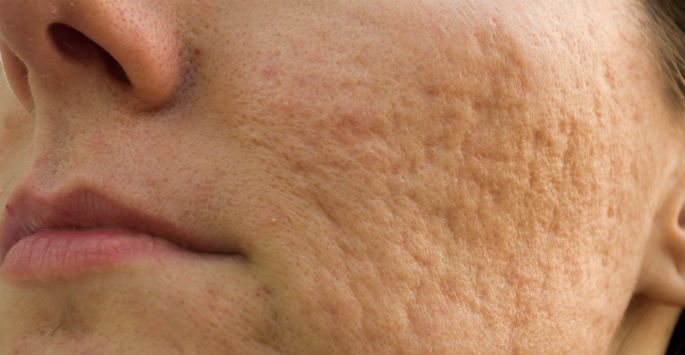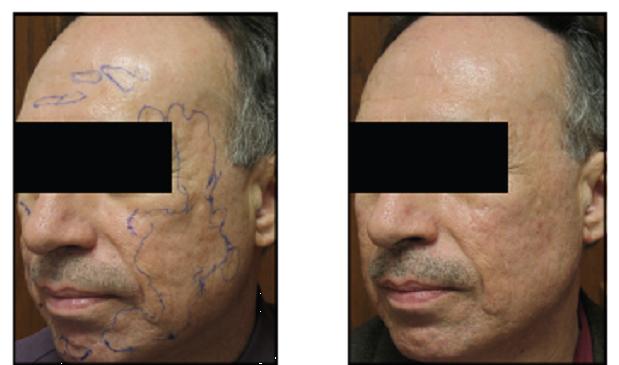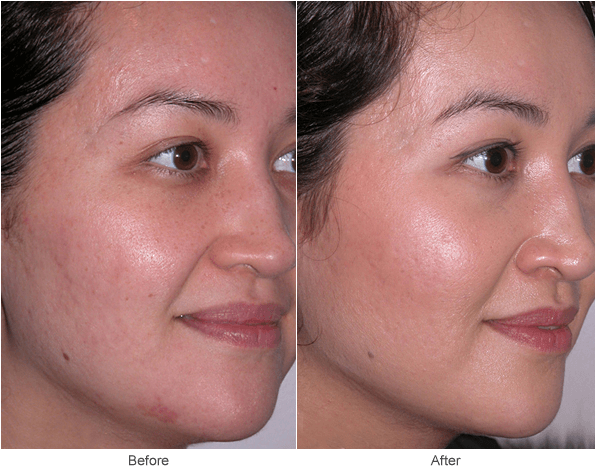Efficient Acne and Acne Scars Treatment: Clear Skin Solutions That Work
The Impact of Skin Problem on Confidence: Efficient Techniques for Dealing With Acne Marks
Skin conditions, specifically acne, can profoundly influence an individual's self-esteem, commonly producing barriers to social interactions and individual expression. Acne scars act as a sticking around tip of past battles, leading numerous to look for effective therapy options. While topical remedies and progressed dermatological methods existing practical paths for renovation, the interplay between therapy and psychological wellness warrants even more exploration. Recognizing how these strategies can foster confidence might disclose necessary insights into alternative care approaches that empower individuals to accept their skin and boost their general lifestyle.
Mental Effects of Acne
Acne, a common skin problem impacting millions worldwide, can have profound mental impacts on individuals. The visible nature of acne usually causes substantial psychological distress, consisting of sensations of humiliation, low self-esteem, and social withdrawal. Lots of people with acne may experience stress and anxiety, particularly in social situations, where they fear judgment or adverse assumptions based upon their skin problem.
Study shows that the emotional effect of acne can be as incapacitating as the physical symptoms, adding to depression and body dysmorphic disorders in many cases - acne scars. Adolescents, that are usually a lot more conscious peer opinions, might be especially susceptible, leading to destructive impacts on their social interactions and scholastic performance
Furthermore, the preconception related to acne can intensify sensations of seclusion, as people might perceive themselves as less eye-catching or socially appropriate. This psychological concern can prevent personal partnerships and general lifestyle. Hence, it is important for doctor to resolve both the psychological and physical elements of acne, supplying detailed support that consists of counseling and academic sources to help people handle their problem successfully.
Recognizing Acne Scars
Dealing with the after-effects of acne frequently entails facing the marks it leaves behind, which can be a substantial source of irritation and psychological distress for several individuals. Acne scars can show up in different kinds, largely classified into atrophic, hypertrophic, and keloid scars. Atrophic marks are identified by a loss of cells, resulting in anxieties in the skin, while hypertrophic marks involve raised tissue that develops in action to swelling. Keloid marks, an extra severe type, expand beyond the original site of injury, providing an one-of-a-kind difficulty for therapy.
Skin type and genetics also play essential duties in mark growth. Comprehending the organic devices behind mark development assists in addressing the psychological consequences, as individuals might view their scars as irreversible markers of a previous battle.

Topical Therapy Alternatives
While various treatment approaches exist for resolving acne marks, topical options are usually the initial line of defense for individuals looking for to enhance their skin's appearance. These treatments can be reliable in decreasing the visibility of marks and promoting general skin wellness.
Typical topical agents consist of retinoids, which enhance cell turnover and motivate the regrowth of skin cells, thus enhancing texture and tone. Additionally, alpha hydroxy acids (AHAs) and beta hydroxy acids (BHAs) scrub the skin, eliminating dead skin cells and promoting a smoother surface area.
Another prominent alternative is vitamin C serums, recognized for their antioxidant residential or commercial properties and ability to brighten skin, which can help lessen the appearance of hyperpigmentation related to acne marks. Hyaluronic acid is additionally useful; it moistens the skin and can plump areas affected by scarring.
Over-the-counter items having components like niacinamide and licorice remove might likewise aid in reducing swelling and staining. It is vital for individuals to speak with a skin specialist to identify the most suitable topical treatments tailored to their distinct skin type and scar features, taking full advantage of the potential for reliable outcomes.
Advanced Dermatological Treatments
For people looking for more prompt and substantial improvement in the appearance of acne scars, progressed skin-related procedures provide a variety of efficient special info choices. These procedures are made to target deeper skin layers, fostering significant skin regrowth and improvement.
One popular strategy is laser treatment, which uses concentrated light to resurface the skin and decrease the look of scars. Fractional laser treatments, in specific, are reliable as they advertise recovery while targeting specific locations, lessening downtime. Chemical peels off, which entail the visit the website application of acidic options, can likewise be beneficial by exfoliating the skin and promoting new cell growth.
Microneedling is another cutting-edge choice, including making use of great needles to produce micro-injuries that boost collagen manufacturing. This procedure improves skin appearance and decreases the presence of marks in time (skin rejuvenation treatments). In addition, facial fillers may be made use of to elevate depressed scars, supplying immediate volume and smoothing the skin's surface
These advanced procedures should constantly be performed by certified skin doctors, that can tailor therapies to individual skin types and scar attributes, ensuring ideal results and minimizing dangers. Similar to any kind of medical treatment, thorough appointment and factor to consider of potential adverse effects are crucial.
Structure Self-confidence Through Treatment

Creating a customized skincare regimen that consists of both topical treatments and specialist treatments is essential. Normal cleansing, exfoliation, and moisturization can assist preserve healthy skin, while treatments such as chemical peels or laser therapy might offer much more significant results. Past physical treatments, embracing a holistic approach that integrates healthy way of living options-- such as well balanced nutrition, hydration, and stress administration-- can better enhance skin health and confidence.
Moreover, support from skin-related specialists can equip people to browse their therapy options properly. Sharing experiences with others encountering similar difficulties can promote a feeling of area and resilience. Ultimately, building confidence with treatment entails a complex strategy that focuses on both skin health and wellness and emotional support, bring about a renewed feeling of self-worth and individual gratification.
Final Thought
Acne and its resultant marks can greatly affect a person's self-esteem and social communications. Inevitably, dealing with both the mental and physical elements of acne scars is important for cultivating self-esteem and wellness.
